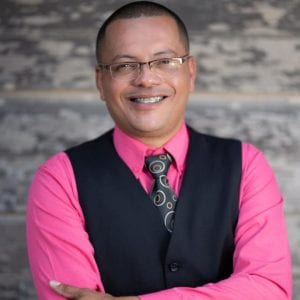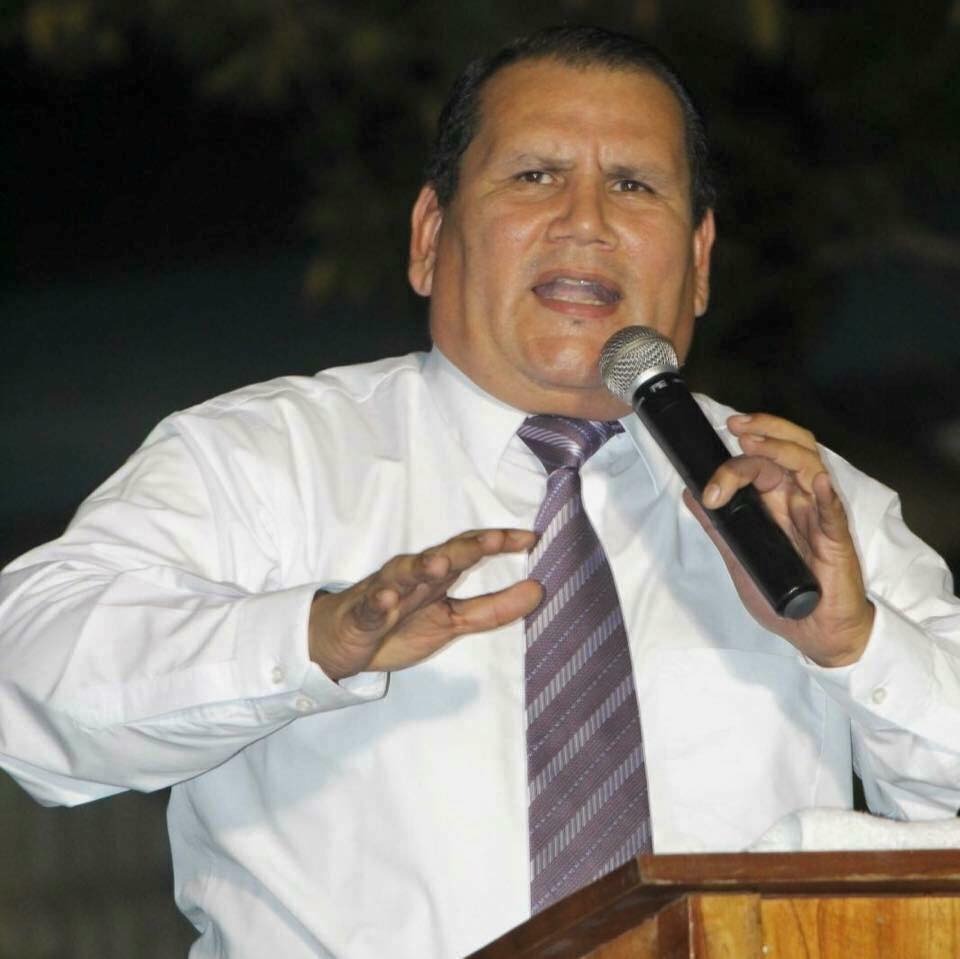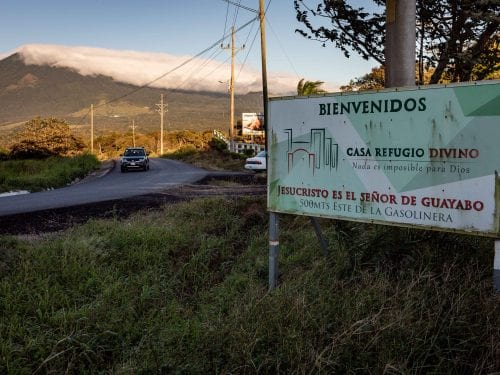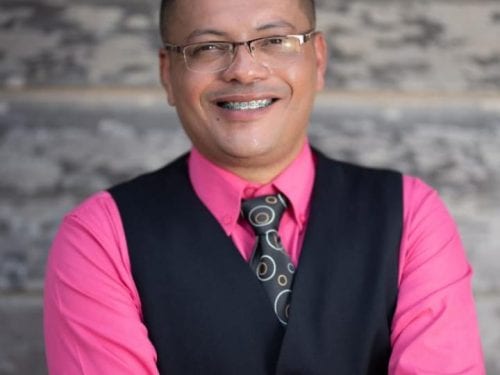
Rigoberto Vega took over as president of the Costa Rican Evangelical Alliance Federation in March 2019, just one year after the Supreme Elections Court sanctioned his organization, for the second time, for mixing politics and religion and of asking people to meditate over their vote “before God and their consciences.”
Before becoming president, he was the administrative director of the organization, but today, a few months away from the next election cycle, he denies repeating the events of 2018. His Federation includes, according to him, 85% of the 4,000 evangelical churches in the country. Vega says that, this time, he doesn’t want the churches to serve as a “political bulletin.” He recommends that those running for mayor should abandon the cloth and take up politics full time.
Political and evangelical leaders reveal how they mix religion and politics in Guanacaste, where 25 percent of the citizens are evangelicals.
Vega says that the Federation “isn’t like the Vatican” that issues orders to follow. In the evangelical church, each pastor is the owner of his own decisions. IN fact, in Guanacaste, not everyone agrees with Vega. Several evangelical leaders are seeking mayoral offices or hoping to lead structures within the National Restauration and the New Republic political parties in the province.
We talked about these topics, among others, with Vega in this interview, which has been slightly edited for space and clarity’s sake.
[Help us continue investigating the stories that matter to you. Donate today].
What relationship should exist between religion and politics in the country in your view?
We don’t believe that, as ecclesiastical institutions, we should have any type of partisan political or electoral participation. That shouldn’t be the church’s responsibility. The church shouldn’t get involved.
We have the duty and the commitment, as an institution, to respect, to serve and manifest our willingness to serve when the decision of who will govern has been made. The church’s participation and the participation of leaders in politics and partisanship worries me. That’s something we shouldn’t get involved in, much less use our own resources, infrastructure, pulpits or services.
That’s something we are requesting and suggesting, but each church is autonomous. The Alliance isn’t like the Vatican that can give orders, but as an alliance, we define our position of not getting involved or giving recommendations on who to vote for.
How big is the Christian Evangelical Alliance Federation in the country? How important is its opinion for Costa Rica’s pastors?
Costa Rica has a little over 4,000 Christian or evangelical churches that are divided into several. For example, Asambleas de Dios is a denomination with more than 520 churches int the country.
Of the 4,000, the Federation has 85% of the churches in the country. The evangelical church in Costa Rica works under the concept of associations. We have 225 legally affiliated associations, but some of those include many more churches.
¿What happened during the last election cycle? What relationship did you have with the party that led the elections, National Restauration?
What has been happening is very concerning. It’s not even what the leaders hoped of those parties, nor of the church. Governing implies a lot of responsibility and preparation. In terms of what happened, you see the results. Our responsibility is making our position on this clear.
It’s publicly known that we were sanctioned at one point by the TSE for the statement made by the federation with the Catholic church. That’s why we want to make our position clear. (Note: The TSE sanctioned the Costa Rica Episcopal Conference and the Costa Rican Evangelical Alliance Federation for mixing election politics and religion in January 2018)
You must understand that I was elected in February. In March, I took on a new project in which we are clearing up our position. We have met with religious leaders from the churches. We are discussing our position in terms of electoral politics. What may have happened before that is what led us, at least me as president, to establish the federation’s position? It has always existed in statute’s and it’s what we want now.
Evangelical pastor and singer Diego Contreras says he doesn’t have any politic experience, but that God’s going to give him the wisdom to lead a local government.

Diego Contreras, pastor and National Restoration Party candidate for Santa Cruz
I have found several church pastors and leaders for municipal elections. For example, a Christian singer and pastor already has his candidacy ready with National Restauration. What’s your relationship?
Independently of the figure that characterizes a citizen, all citizens have the right to participate in politics. Now, us giving them support is much different. Independently of the investiture that he may have, then they should compete and do it in a clear, legal way. But those who were called to the church, it’s to serve. If they want to do something else they can’t use the church as a political flag.
We are discussing this with the National Leaders Council and we will show it in a release where we show the whole country what our, the church’s position is with regards to the issue, and what distance we should keep in order to avoid crossing lines.
Is this your position? Or is it one that has been adopted internationally at other federations?
Internationally, there are two organizations that have evangelical church representation. The World Evangelical Alliance (WEA) and in Latin America, the Latin Evangelical Alliance (AEL), which, composed of 23, 24 countries. It includes Brazil and Spain) In terms of the policy of each country, each one has a position but it’s respectful of what they want to do in their countries.
Does the Federation’s decision coincide with the recommendation that the AEL gave?
Our decision goes deeper than the AEL’s recommendation. We also do it as a recommendation because we don’t have the authority to give orders to any of our affiliates or individual churches. That might be why you see those politicians in Guatemala. Besides, we are still very new at this. I took office in February
Did the last campaign hurt the church’s image?
None of the parties represent the church at all. They don’t answer to the church. Church issues are totally independent of them.
When you say that they shouldn’t use the church as a political flag, that’s one thing. But, what happens when you talk about values similar to those of people who go to the church in terms of same-sex marriage, therapeutic abortion and sex-ed guides? These are issues that politicians typically use to reach voters and tap into the values of the church. How are you going to prevent not just politicking from the pulpit, but also in discourse echoing similar values?
That has been the big mistake, the battle horse, the manner of tempting the church. Our positions with respect to life are very clear to us. Now they aren’t even issues that go through Congress. We aren’t at all interested in having 57 Christian lawmakers if that is happening in the executive and some of the issues are being remitted directly to the ministries. The supreme court gives authority to the legislative branch, but within a legal framework for same-sex marriage.
The idea that we are going to defend this and that, no longer because the issues no longer go that way (through Congress). We’ve had evangelical parties for 30 years, the years have gone by and these issues never took root.

We don’t want the church to be used. Logically, we have to learn from what we have suffered. We have to recognize and ask for forgiveness and there were things in which we wanted to get involved in that we shouldn’t have. Again, we are vehement about this. We don’t want any type of distraction in that sense (the political sense).
We believe that there should be political participation. In the process of electoral politics, we want to be careful and not become a political platform for anyone. Not even for those called confessionals. Everyone seeks us out there. They come to the doors of the church, they ask us to pray for them, speak a few words and try to get involved in the church. We don’t want that.
What has been the initial reaction of pastors and church leaders that you have met with?
Churches have applauded it. They have a good view of our proposals and they are waiting to see what our official position will be. We have worked a lot. I have been careful about not letting them divide us. But we aren’t divided. Those people had more personal interests and didn’t want to think about the country.
What do you mean they wanted to divide you? Who wanted to divide who?
What we saw in the previous campaign, that was impressive. They wanted to work against families. They wanted to work against the election battle. It was an embarrassment and extremely difficult. When we talked with the president (of Costa Rica) we told him, ‘we are the leaders of the Christian and evangelical church. We are respectful of the processes and the final decisions.
So, you are referring to polarization across the country or internal division in the church?
It was religion. They wanted to make Catholics fight evangelicals. It went to new heights. Some have sought to take on very rude and violent positions even within the churches and we need to work on that and not present ourselves in a way that causes division.
So, for you, a pastor that wants to be a mayor or a lawmaker should completely separate their celestial activities from partisan politics, or should quit being a pastor?
The most recommendable is to quit being a pastor. As I said, they can be independent. If you are talking about in terms of being a pastor, then yes, they should stop being one.
The neo-pentecostal movement proposes that God should take charge of the leadership of the seven mountains: art, culture, education, politics. What’s your opinion?
That’s wonderful. I believe in cultural mountains. I believe that we should have high-caliber people there. I am talking about people with integrity, of true Christian principles, people that want to go to Congress to praise the name of the Lord for the country. I wish we had people of that caliber, But we don’t have it.
When I am told, look at Daniel in the Bible. But there we are talking about people with an extraordinary connection with God. We are talking about people that have that level of quality, but we don’t have it. From our perspective, a ministerial calling is totally different. But having people in the church with sold foundations is ideal. I don’t see myself leaving the ministry to take a political position. To govern, you need a lot of experience.
So, according to your vision, that experience doesn’t correspond to the church?
Guatemala has taught us. They have had four evangelical presidents and, of those, one is dead, three are in jail, and the party continues. As a church, we have to open our eyes and know that our job and our function has a different objective. It can’t be proselytizing.
What are the next steps for the Christian Evangelical Alliance?
We are going to work on uniting ministries and leadership, and for politics to not distract us because it’s not a topic that has to do with us. How do we avoid it? By dedicating ourselves to what falls in our purview, not politics, much less the politics of confessional parties, which are the ones that have created the biggest scandals in the country. A party gets divided, another one created, they call themselves the lawmakers of New Republic and it’s not true. New Republic doesn’t have a single lawmaker elected. That’s a problem. But our concern as a federation is taking care of ourselves and protecting ourselves from making mistakes.
In practical terms, how are you going to avoid it? Evangelical churches represent a sea of voters for politicians.
The church has never let politics deter it from its mission. I hope they don’t get the idea of financing our programs of attending to the poor. We will keep doing that. The church must continue to be relevant to its community and not let anyone get involved in that because it would be immoral. Just what concerns them and nothing more. When they are on campaign and the come and knock on our door and want us to pray for them and say hi to people and that opens the door to complications.
That worries us in the sense that we are supporting people who want to reach positions of power. The church doesn’t need anyone to take care of it, and they are the ones who take care of it.
Have you ever been involved in partisan politics?
At one point there were offers. I had to make a decision by thinking about what I said a few moments ago. It wasn’t one of the confessional parties. They didn’t offer. It was for a spot in Congress in the last campaign.








Comments